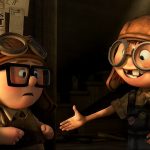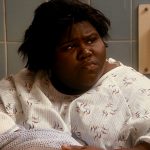Up in the Air – 2009
This was a very good movie. It was an intellectual film that had multiple themes and plots. It starred George Clooney, Vera Farmiga, and Anna Kendrick in the leads, with smaller parts filled by Jason Bateman and Danny McBride, along with a few cameo-sized rolls played by recognizable names like Sam Elliott, Zach Galifianakis, and J.K. Simmons. One might call it a dramedy, though I’d just call it a slightly romantic drama.
It is about Ryan Bingham, played by Clooney. He is a professional corporate downsizer, otherwise known as an axe-man. His job is to travel the country and fire large numbers of people for companies that don’t want to do it themselves. As part of the service, he offers the affected employees termination assistance. But you have to be a certain kind of person to succeed in such a profession. To a certain extent, you have to be a jerk who is comfortable with people getting upset in front of you and at you. Ryan fit the bill perfectly.
In fact, he was also a part-time motivational speaker that tried to help people by telling them to live free of baggage, both physical and emotional. In order to achieve this, one must cut down on physical possessions and friends. He is happy with his solitary life until he meets two women. The first is Alex Goran, played by Fermiga. She is a traveling business woman who spends nearly as much time flying around the country as he does. They meet and begin an affair that is completely free of expectations or commitments. They do everything they can to plan their constant travel schedules to meet for their trysts.
The second woman is Natalie Keener, played by Kendrick. She is a smart and driven young college graduate who gains employment at Ryan’s company. She convinces Ryan’s boss, Craig Gregory, played by Bateman, that they could save money if they implement a video conference platform for firing people remotely, thus eliminating the need for all the travel expenses. Ryan’s well-ordered and happy life of flying from one place to another is put on the path to extinction. His occasional liaisons with Alex are also put in jeopardy.
Getting fired or laid off is something that is personal, difficult, and upsetting. It can bring up feelings of anger, betrayal, fear, hopelessness, and depression, the kinds of things you don’t wish on anyone. But the movie spent a considerable amount of time focusing on Ryan and Natalie as they travel around the United States so he can teach her the ropes of the trade, giving her first-hand experience firing people and dealing with the emotional baggage that goes with the job. As the two get to know each other, she becomes harder, and he becomes softer.
But I think the main theme in the movie was really the romance. If you hadn’t guessed it, though Ryan claims to be happy in his solitary life, he falls in love with Alex and finds that he is no longer happy being alone. I really liked the way the movie effortlessly developed their relationship. It felt natural and organic. Clooney and Farmiga had an easy on-screen chemistry that was really nice to watch. And I was completely taken in by their romance, right up until the last second.
You see, when Ryan realizes that he is in love with Alex, he jumps on a plane to go to Chicago, where he plans to surprise Alex in her home and declare his love for her. The familiar romantic music starts playing. He seems to be walking on air as he rings her doorbell. But I knew something was wrong. She opens the door and we can see her kids playing behind her. We can hear her husband asking who is at the door. It was sad, but I really liked how Alex wasn’t made out to be a bad guy, except maybe a little because she was also falling in love with Ryan.
And Natalie’s little subplot was just as poignant and dramatic. She had only moved to Omaha to work at Ryan’s company to follow a boyfriend who had since dumped her. Then, when her online firing plan is about to be implemented, she learns that one of the people she fired with Ryan has committed suicide. Distraught, she quits her job and moves to San Francisco to get the job she really wants. Ryan, having turned over a new leaf in his life, writes her a glowing recommendation letter.
The film was interesting and unique, and the casting was perfect. Film critic Kenneth Turan of the Los Angeles Times stated it perfectly when he said, “Up in the Air makes it look easy. Not just in its casual and apparently effortless excellence, but in its ability to blend entertainment and insight, comedy and poignancy, even drama and reality, things that are difficult by themselves but a whole lot harder in combination. This film does all that and never seems to break a sweat.”
















































































